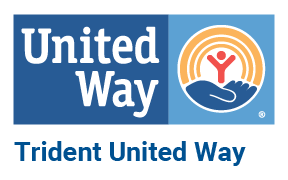Trident United Way awards $25,000 Community Engagement Grants
January 8, 2020Diverse list of groups across Tri-County benefit from our community support
Trident United Way announced grants to seven groups totaling $25,000 for special events aimed to help strengthen families, encourage mentoring and promote health and well-being across the Tri-County.
This is the second round of a $50,000 grant cycle which provides an immediate benefit for special one-time events focused on education, financial stability, health, basic needs and volunteerism. Trident United Way donors are key to helping make these programs a success.
January 2020 Community Engagement Grant Recipients
- Kids On Point – Squash sport bash
- Be A Mentor, Inc. – Mentor appreciation celebration
- Lowcountry Youth Services – 2020 Boys to MENtors fellowship banquet
- Carolina Youth Development Center – Strengthening families, celebrating communities and services
- Communities In Schools of the Charleston Area – Smack Dab Book Club and writing workshop
- College of Charleston Foundation – Be Well Expo
- Roper St. Francis Foundation – 2020 Tri-County Drug Take Backs
“This Trident United Way Community Engagement Grant allows Be A Mentor to celebrate and honor the collective work that more than 320 mentors have on our community,” said Be A Mentor Executive Director Alexandra Moor. “Bridging inequality gaps starts with relationships built between community members. Trident United Way funding allows mentors, mentees and their families to come together to celebrate the village that it takes to lift up our children”.
Grant Success Story
Trident United Way’s Community Engagement Grants have awarded nearly $200,000 to 33 organizations since 2016. The benefit to our community can be measured one success story at a time.
From the most recent grant cycle, The Association for the Blind and Visually Impaired held a Vision Loss Self-Management Seminar. The six-week education and health awareness course helped blind and visually impaired adults develop self-efficacy, enhance their independence and learn to advocate for themselves to improve their overall health.
“One participant struggled emotionally for years since losing her vision. She was unable to cope with her vision loss and became more depressed as her vision worsened as she was no longer able to participate in some of her favorite hobbies. Despite efforts from staff and therapists, she could only look at her life based on the things she was losing because of her vision loss. In the seminar, she experienced a breakthrough and discovered she does not have to be defined by her vision loss. She was able to learn that she has worth and her life is valuable because she can share her knowledge and help newer clients. She now feels like her life has meaning again and she now feels hope for the first time in a long time.”






















